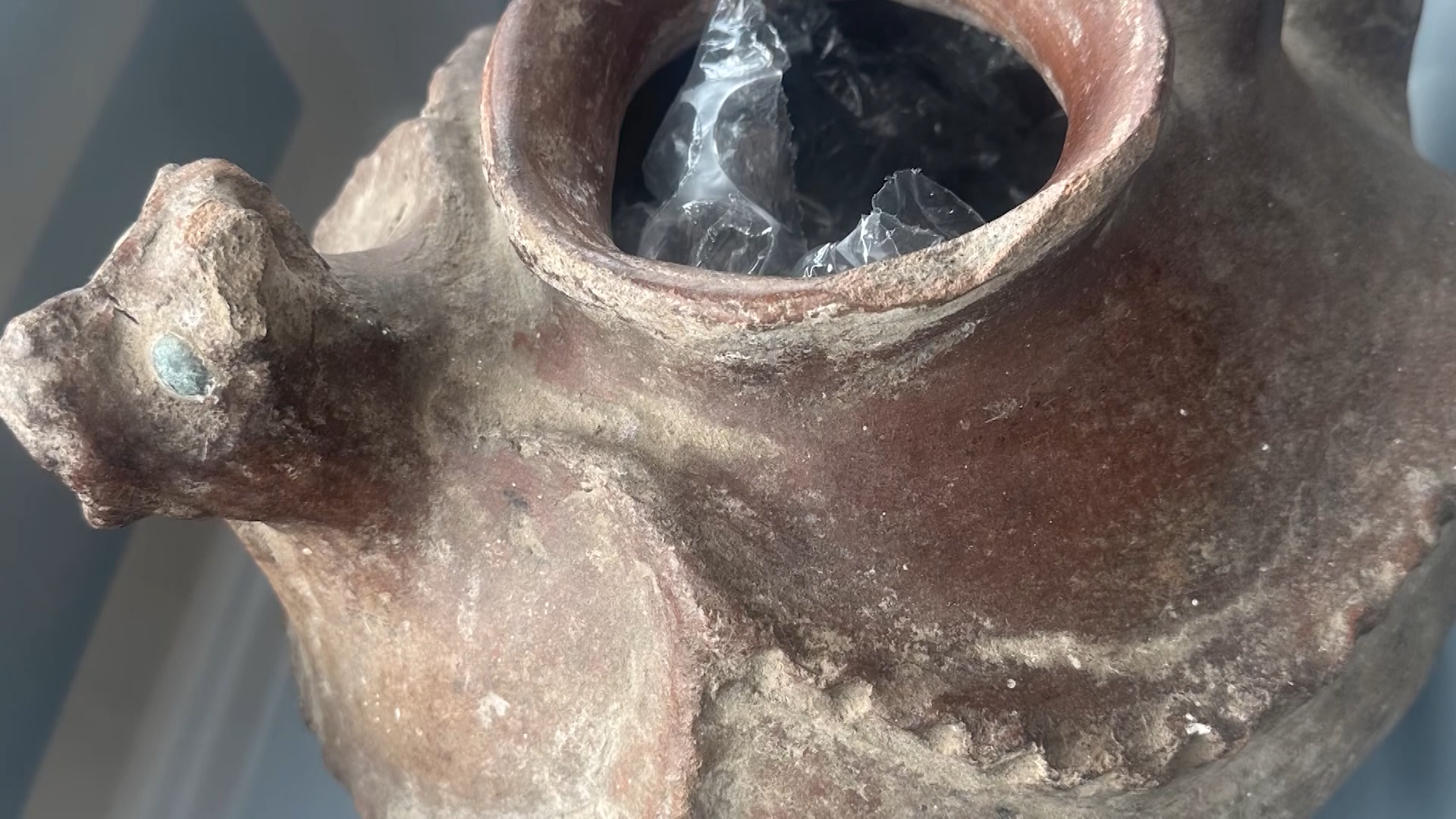Christina Merrild, a Tampa mother, thought she was concluding a week-long vacation with her two sons and friends with fond memories of Costa Rica. Instead, she found herself embroiled in a legal nightmare that began innocently enough in a customs line and ended with her in handcuffs, facing charges she couldn’t comprehend.
The Arrest That Shocked
The trouble started when Merrild was preparing to leave Costa Rica and head back to Tampa. During a routine check, Costa Rican customs officials flagged a piece of pottery Merrild had in her carry-on. The seemingly innocuous souvenir, which Merrild had purchased for $40 at a local home store, was suddenly at the center of a significant legal misunderstanding.
“They asked me if it was a pre-Columbian artifact,” Merrild recounted to Tampa’s WFLA. “I told them I paid $40 for it at a home store; I don’t understand what’s happening.”
Customs Confusion Turns Serious
Initially, Merrild was told she would need to sign some paperwork and pay a fine—a solution that seemed manageable, even if annoying. Opting to stay behind while her family went ahead on their scheduled flight, Merrild prepared to resolve the issue and catch a later plane. However, the situation escalated quickly once her family departed.
According to Merrild, the customs officials then demanded $160 in cash as restitution, which was all the money she had on her. There was even talk of her making a bank transfer to cover the fine. The stakes were much higher than she had anticipated, and the confusion turned into fear.
“I realized I was in danger when they told me I was going to go in handcuffs,” Merrild said. This stark shift in her circumstances left her reeling. “I’m still processing what happened, and every day it feels a little bit more real just how much danger I really was in.”
Mug Shots and Legal Limbo
The ordeal did not end with the payment of the fine. Merrild was taken into custody, where she was photographed for mug shots. She was released but left with lingering uncertainties about her legal status in Costa Rica.
“I don’t know the crime they’ve put under my name in that country, and I don’t know what resources to go through to be able to have any kind of confirmation of what crime they falsely attached to my name,” she expressed, still bewildered by the ordeal.
Navigating Foreign Legal Systems
Merrild’s experience underscores the complexities and potential dangers of dealing with legal systems abroad, particularly over misunderstandings that travelers might deem trivial. What started as a simple purchase of a souvenir spiraled into a situation where a tourist faced unexpected legal challenges without clear guidance on navigating the foreign legal landscape.
Lessons and Warnings for Travelers
This incident serves as a cautionary tale for international travelers about the importance of understanding and complying with local laws and regulations regarding artifacts and other culturally significant items. Even items purchased at mainstream stores can sometimes be misidentified as historical artifacts, leading to serious legal consequences.
Moreover, Merrild’s plight highlights the potential isolation and helplessness that can occur when caught in such a predicament abroad, especially when language barriers and legal unfamiliarity come into play.
As Christina Merrild reflects on her harrowing experience, the real implications of her story reach beyond her personal ordeal. It serves as a critical reminder for all travelers about the vigilance needed when purchasing souvenirs and the broader implications of seemingly simple decisions in a foreign context. Her story also calls into question the procedures and practices of customs officials in tourist-heavy nations, emphasizing the need for clearer communication and more straightforward legal guidelines for tourists.
Merrild’s Costa Rican vacation tale ended not with a sunset but with a sunset clause on her freedom, however brief, reminding all of us of the precarious nature of international travel and legal entanglements.

